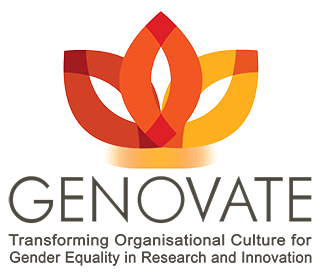 The GENOVATE Community is a platform which enables GENOVATE partners to share institutional information and case studies, and facilitates the coordination of a buddy system for bench learning.
The GENOVATE Community is a platform which enables GENOVATE partners to share institutional information and case studies, and facilitates the coordination of a buddy system for bench learning.
The GENOVATE Community consist of seven GENOVATE partner institutions; the GENOVATE International Advisory Board; key strategic collaborators and stakeholders and the general public. It is a mechanism designed to facilitate meaningful knowledge exchange across the community at local, national and international levels within each of the partner institutions’ countries, across Europe and globally.

The Swedish EU network for gender equality in academia (SENJA), had a keynote in the national gender equality conference held in Uppsala, Sweden on October 22-23, 2015. The SENJA members come from ongoing FP7 and H2020 gender projects: FESTA, GenderTime, GENOVATE, GenPORT, genderSTE and GEDII. Swedish experiences of EU gender equality projects were highlighted by the FESTA team in this keynote speech. The two-day conference attracted 100 participants http://akkonferens.slu.se/likavillkor2015/

Next step after the GENOVATE focus group and interviews in October at LTU was planned to be a workshop on value exercises which took place on November 10, 2015 and was facilitated by Eva Källhammer. Value exercises expose our norms and values, while at the same time provide an open space for making people conscious, understand and change behaviours and attitudes. The results of the focus group, interviews and workshop will be illustrated by the Persona method and discussed in a final workshop in 2016.
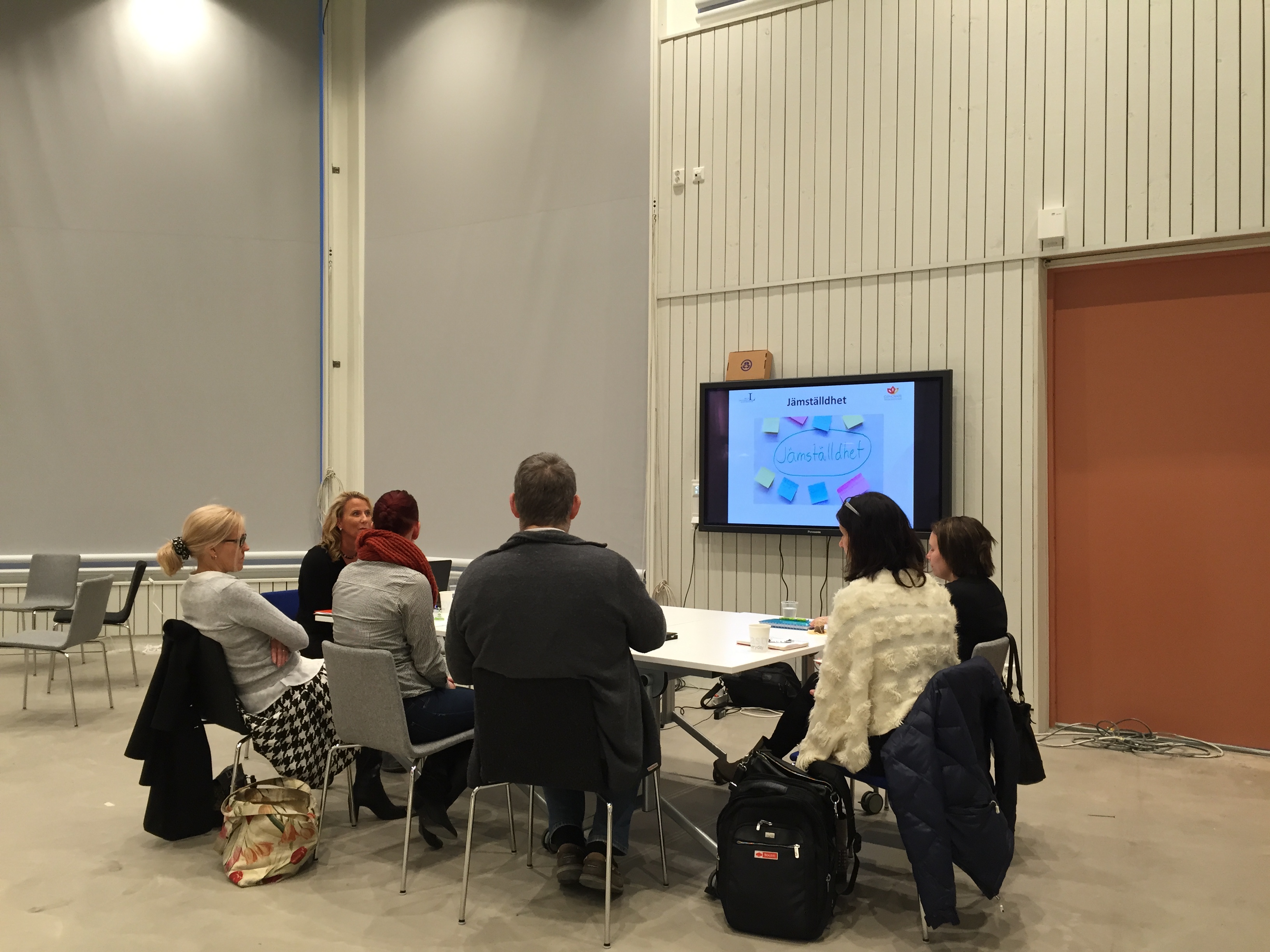
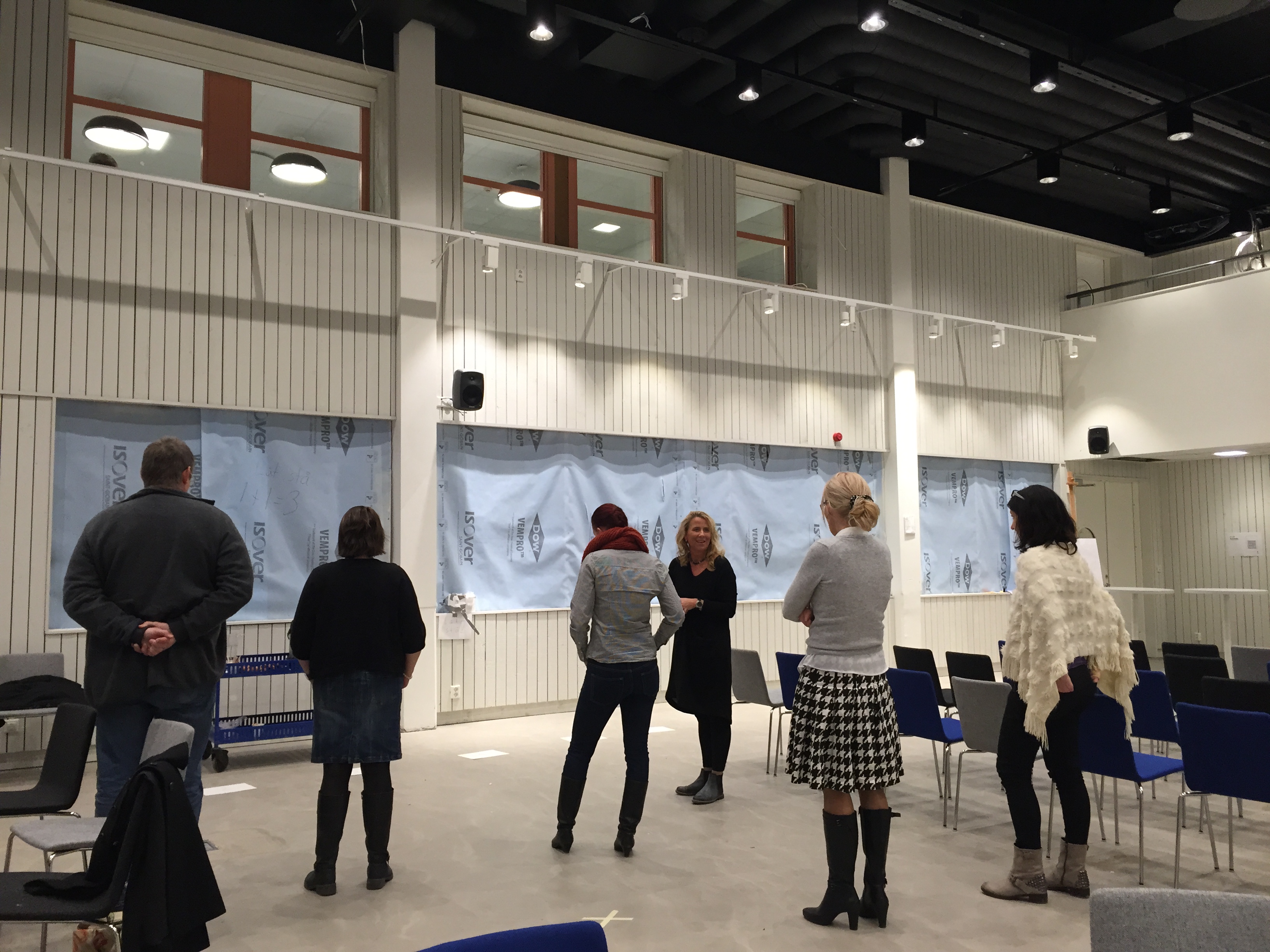
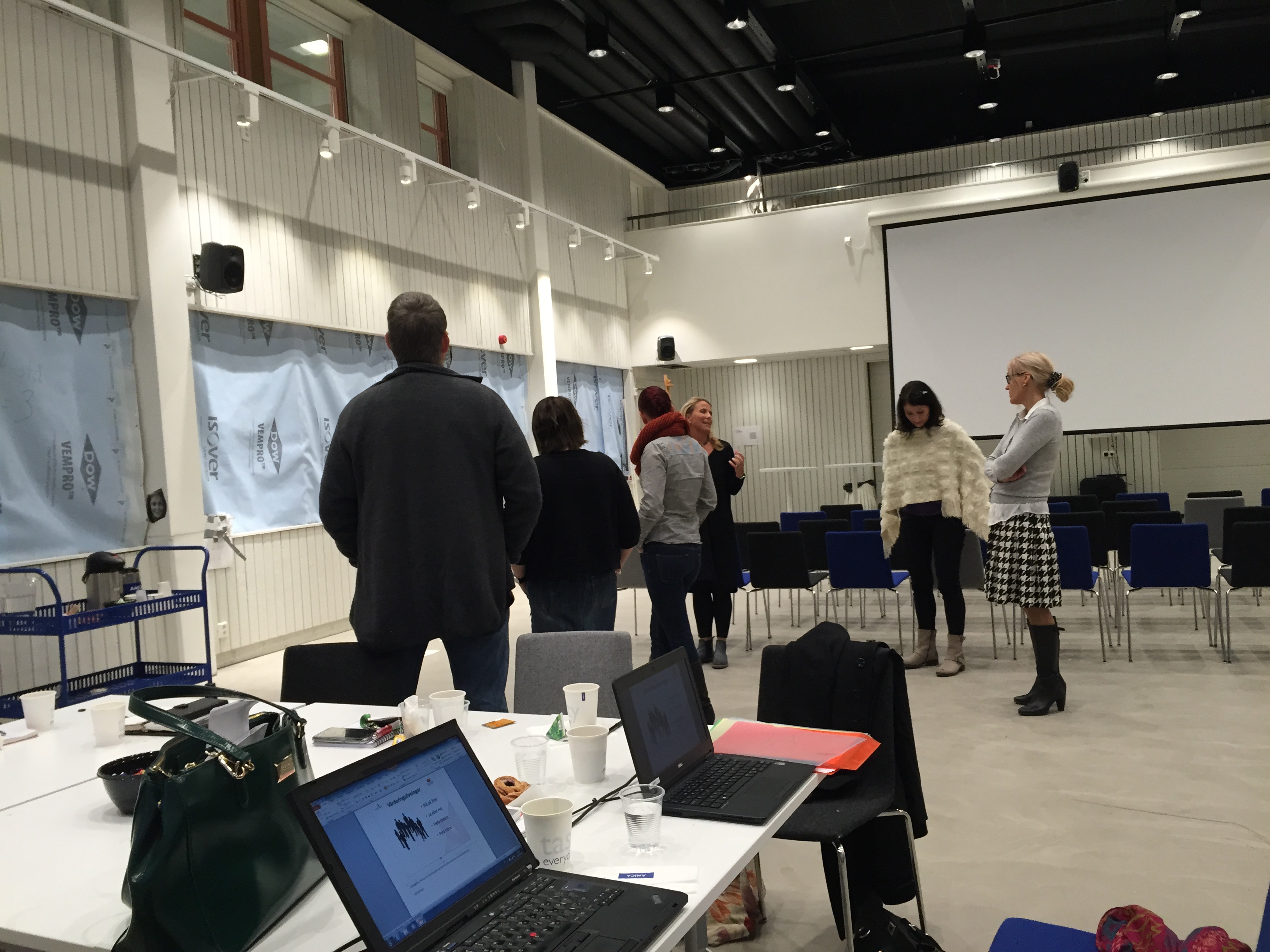
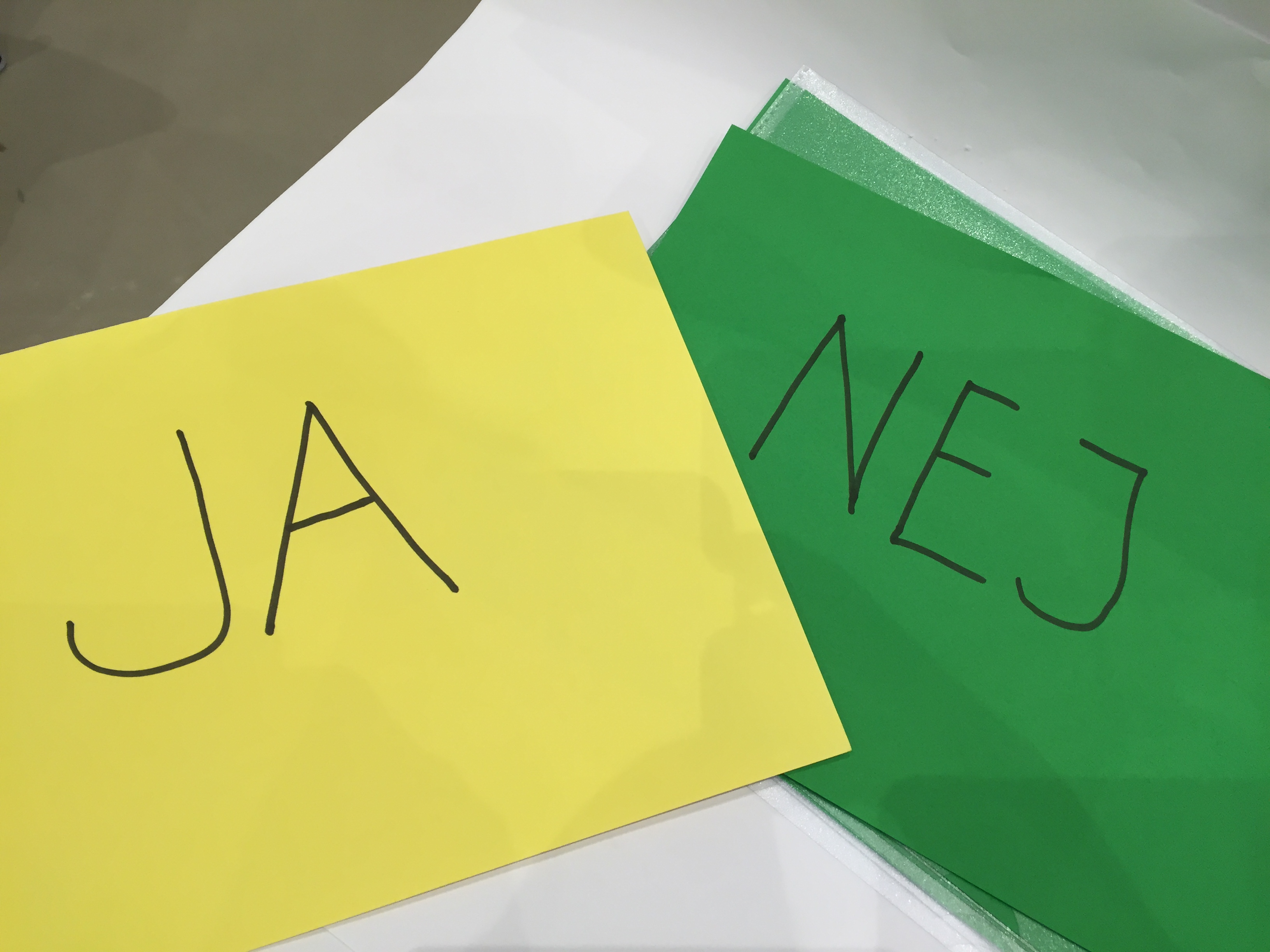

The 6th Advisory Board meeting was held last week at Luleå University of Technology. The main agenda item was the first version of the Gender & Diversity Toolkit which is one the deliverables of the project. The toolkit was demonstrated by Åsa Wikberg-Nilsson and the discussion afterwards had focus on when and how to carry out more tests and with which target audience. The GENOVATE WP5 team welcomes all creative and innovative ideas regarding content, usability, design, lay-out etc.
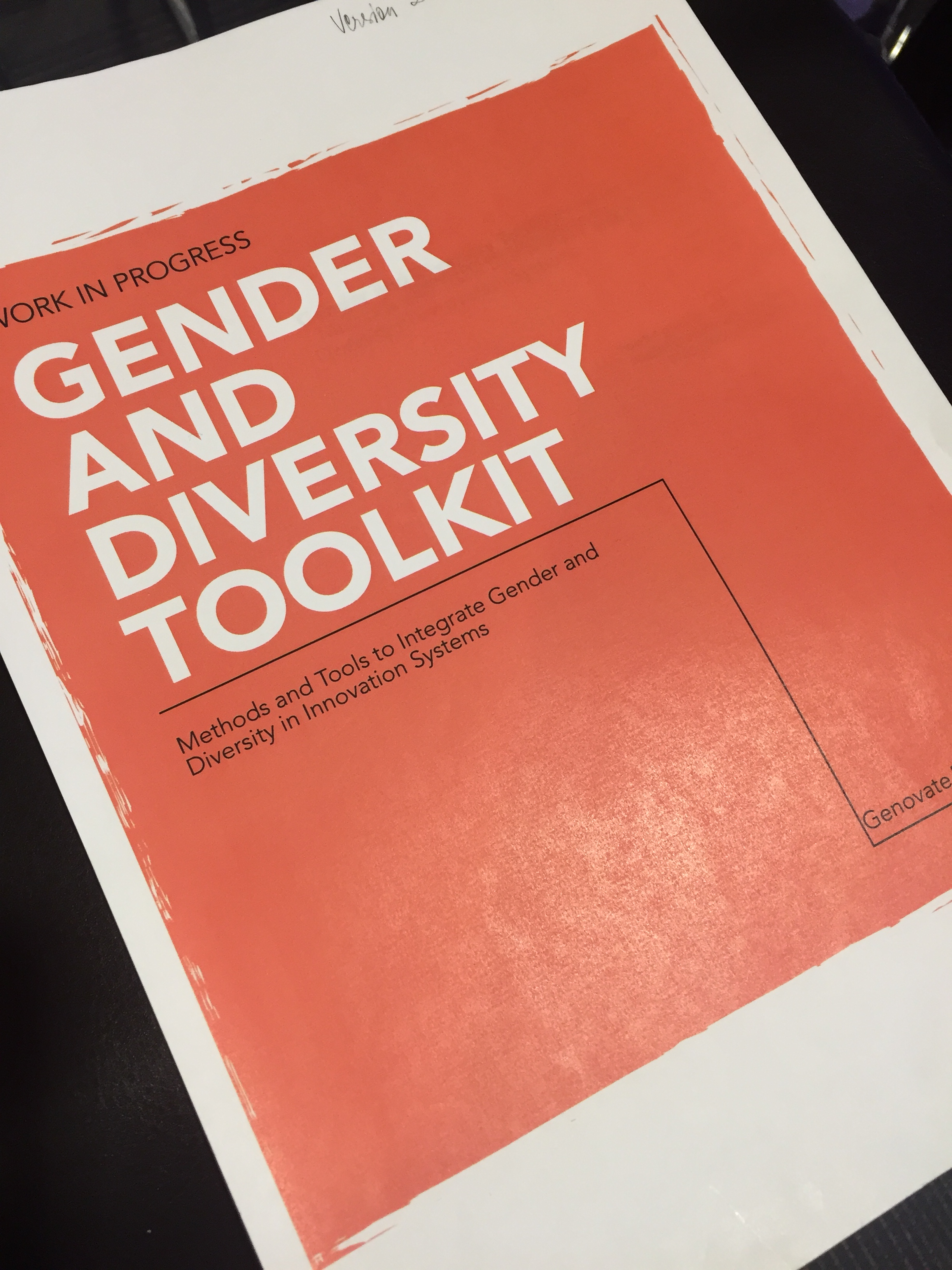

LTU had a poster session @gendersummit7 in Berlin, Germany November 6-7, 2015. Malin Lindberg's poster discussed Undoing Gender in EU’s social innovation policies? Ylva Fältholm and Paula Wennberg highlighted best practices and good gender mainstreaming examples from LTU, e.g. Genovate, OPTi, SATIN. Gender Summit 7 attracted 320 delegates.
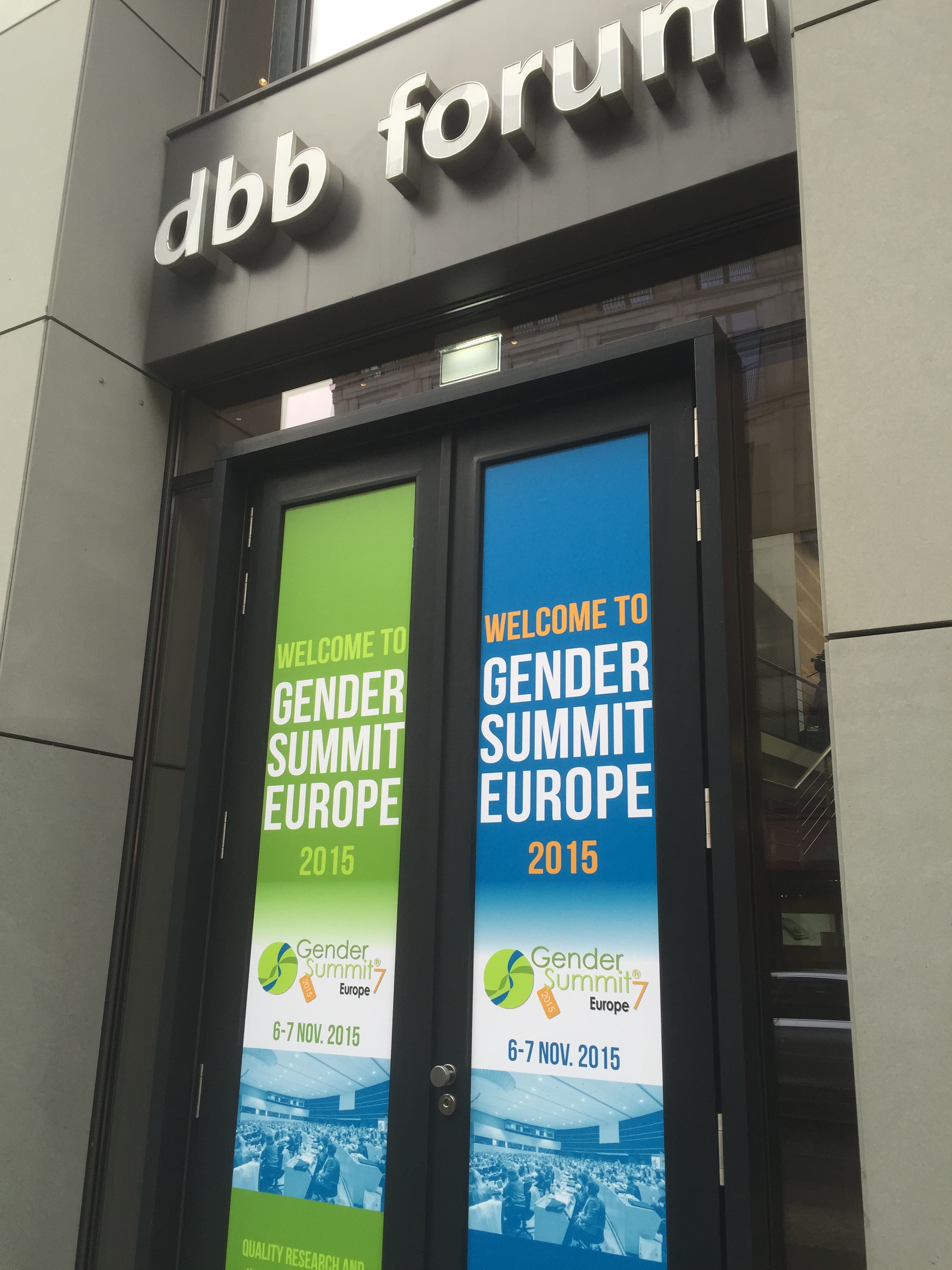
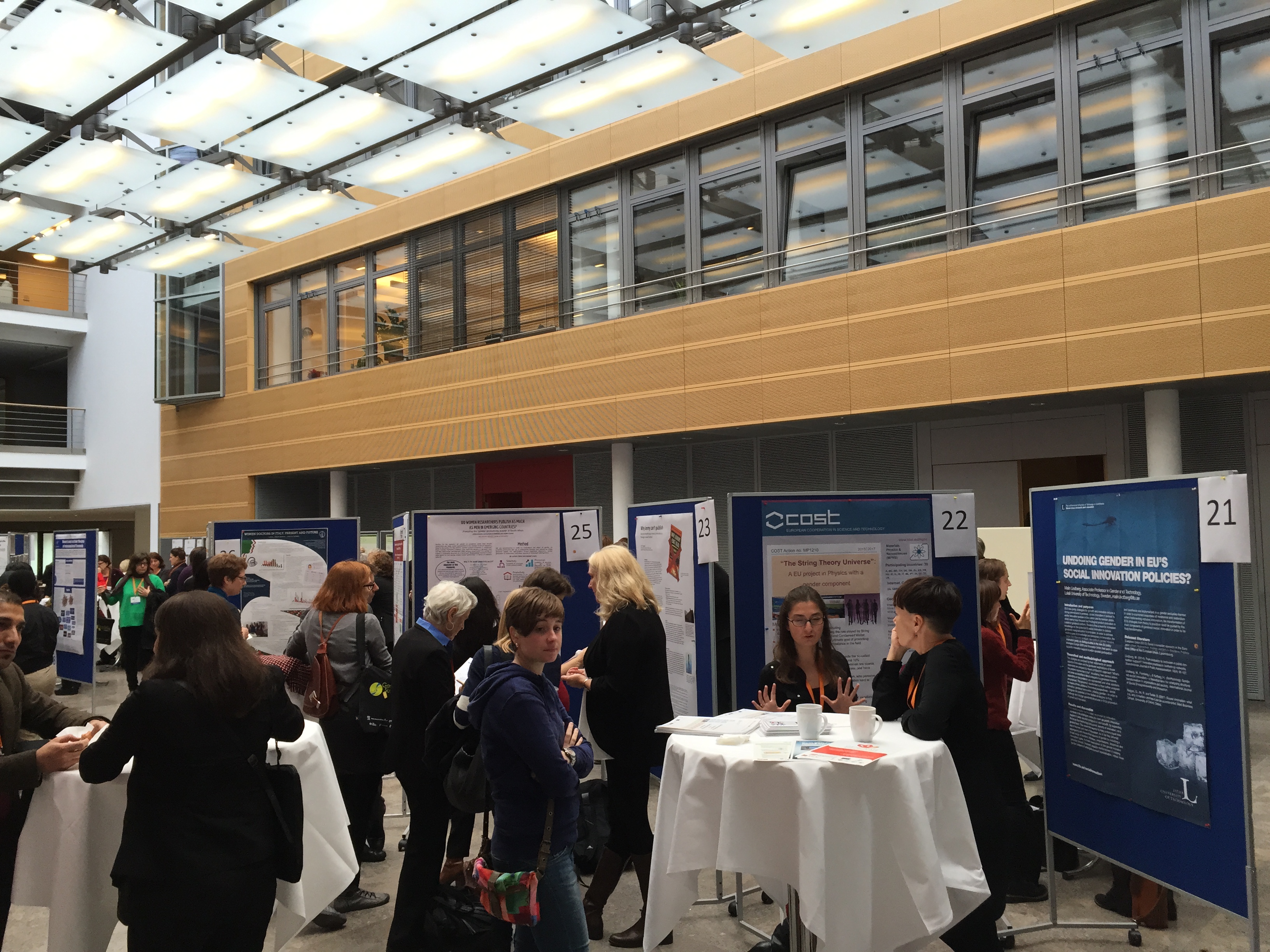
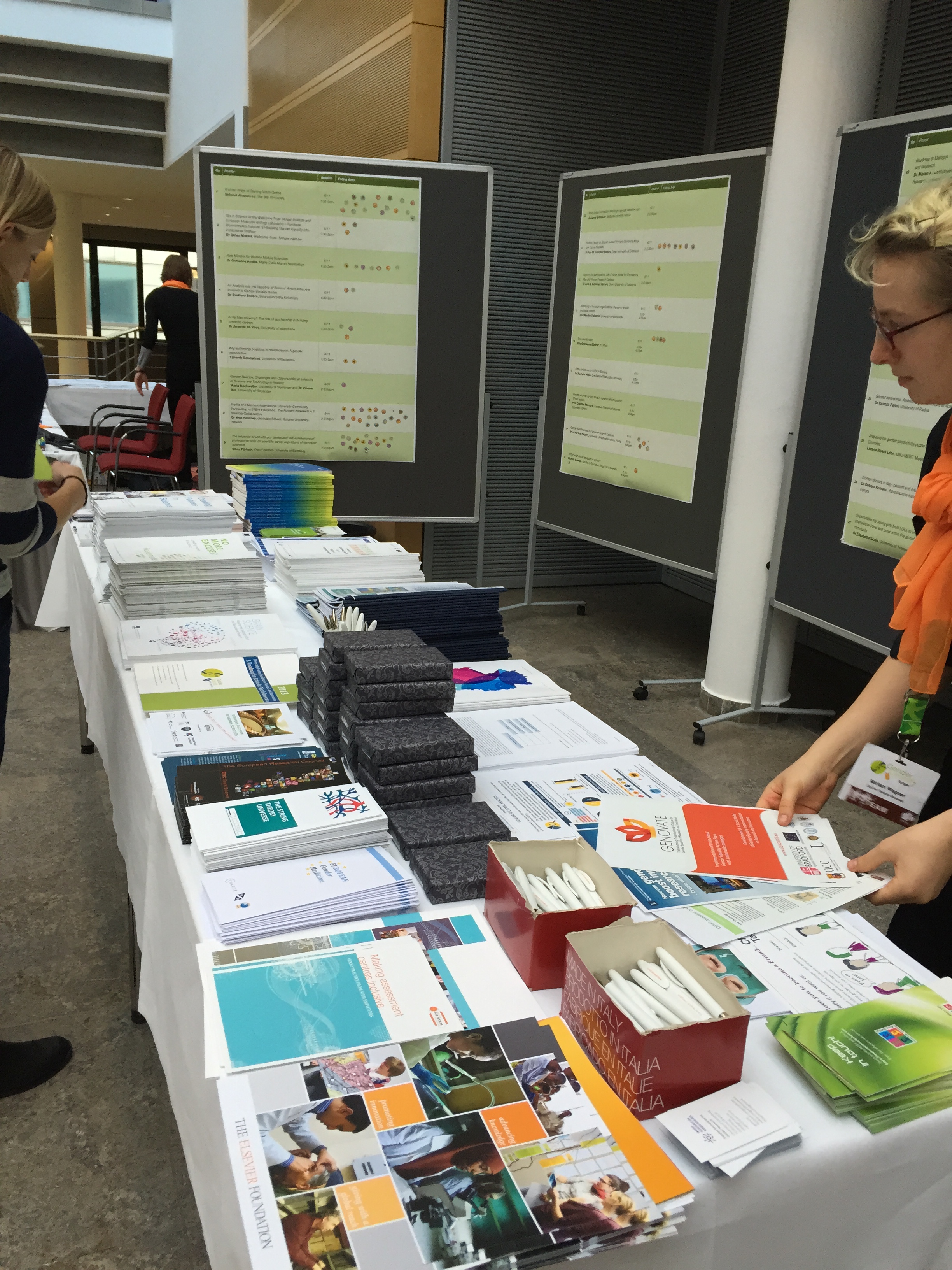

The ICT2015 in Lisbon in October 20-22, 2015 attracted 6 000 participants. In the conference organised by the European Commission GENOVATE results, gender mainstreaming tools and methods were discussed in F2F meetings and networking events. LTU highlighted the OPTi project as a good example on how the project integrates a gender dimension in its core activities:
OPTi - Optimization of District Heating and Cooling (DHC) systems www.opti2020.eu
The OPTi project aspires to create a long-lasting impact by rethinking the way DHC systems are architected and controlled. The overarching goal is to create business benefit for the industry as well as to ensure optimal end-consumer satisfaction. “With a user-centric design, we will contribute to next-generation District Heating & Cooling systems”.
Through a gender perspective the OPTi project aims to enhance creativity and innovation. The project’s ambition is to integrate a gender perspective in decision-making, communication and end-user participation. The project will strive for gender distribution when selecting users for field trials. The aim is to try to understand men and women’s need s and behavior to enhance the quality and relevance of the system. The project will pay special attention to how to communicate with consumers and how to motivate end-user participation and consumer interaction. The project’s ambition is also to achieve widest possible dissemination of the materials and assets generated by OPTi.
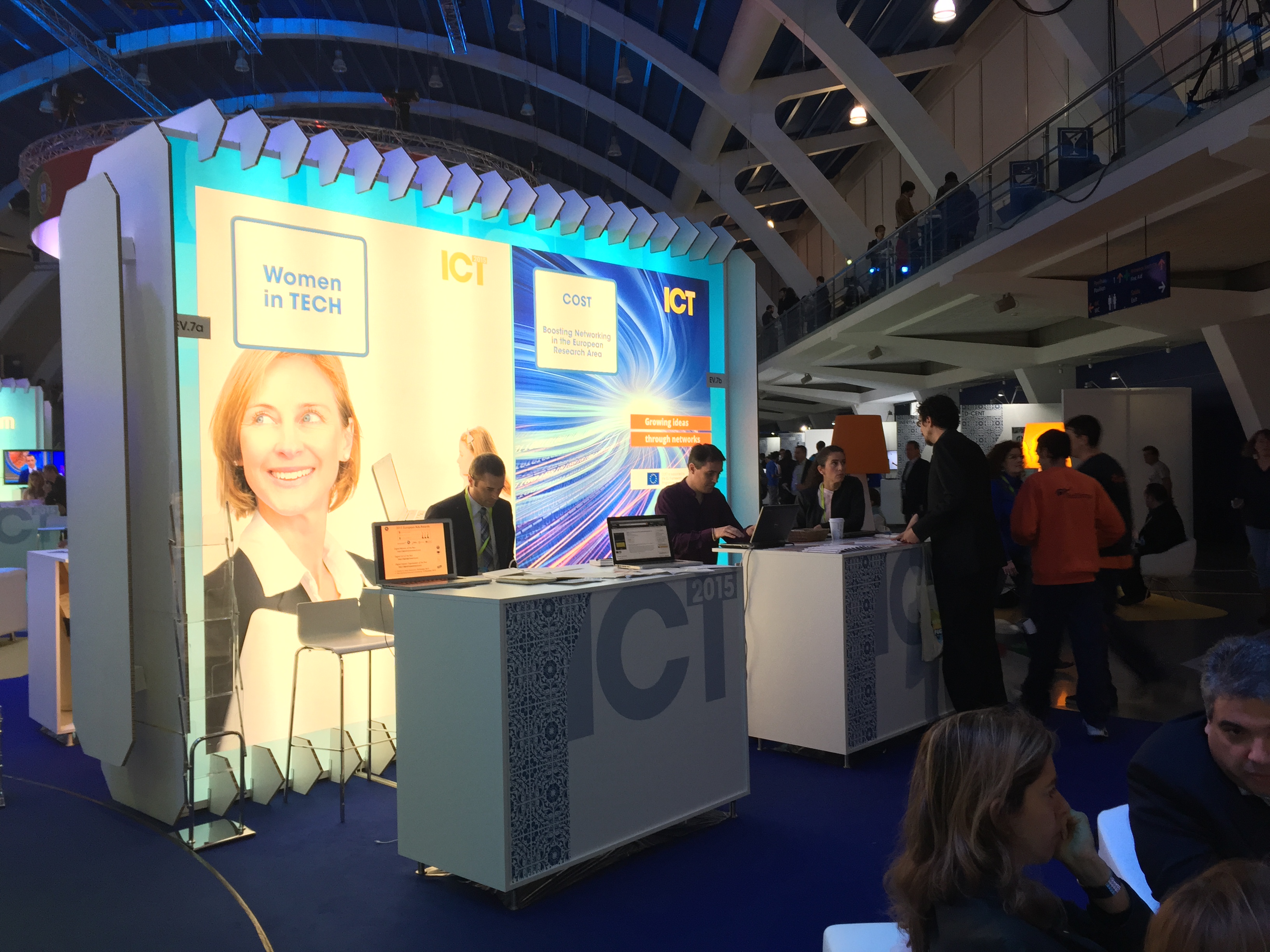
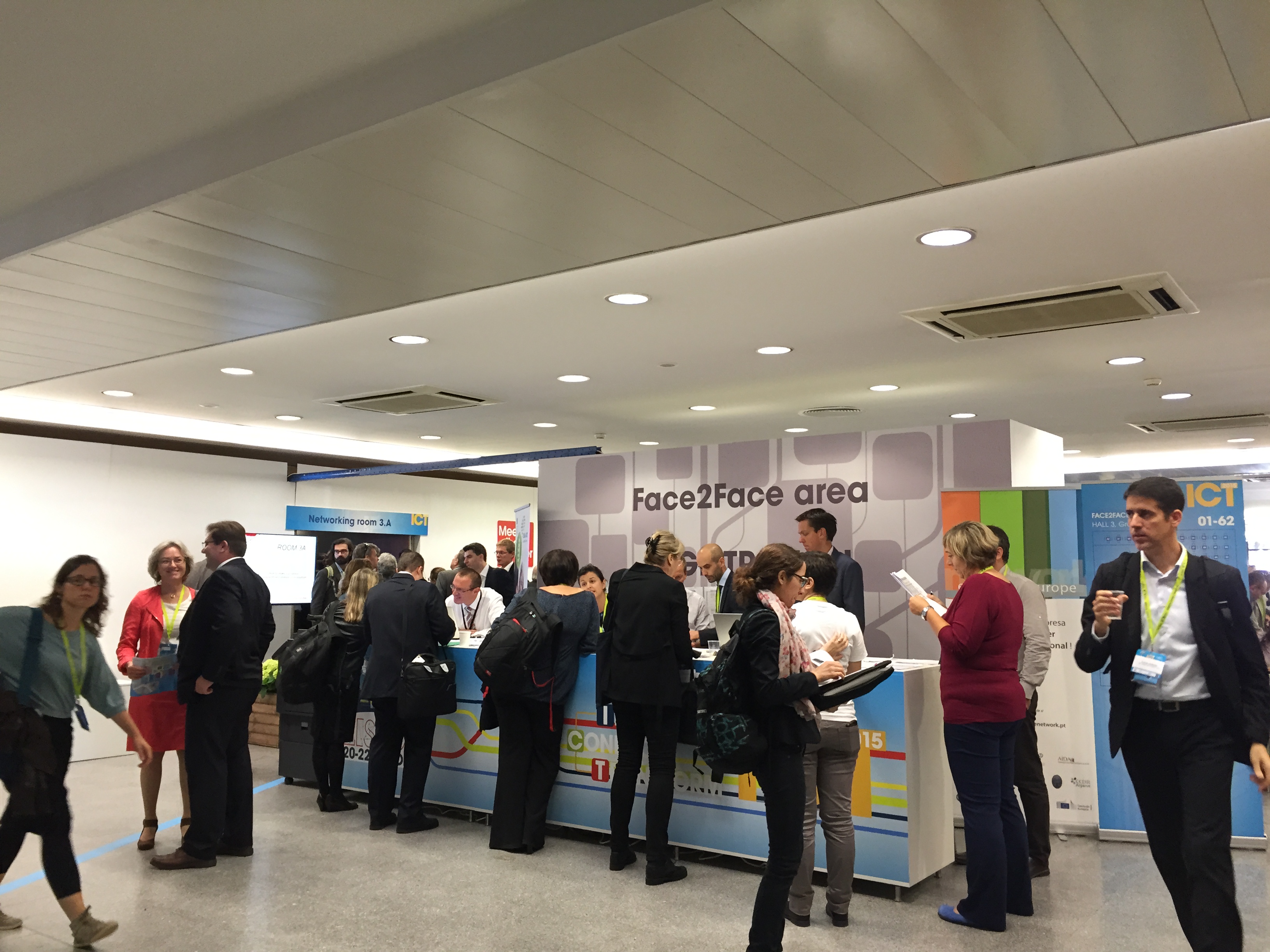
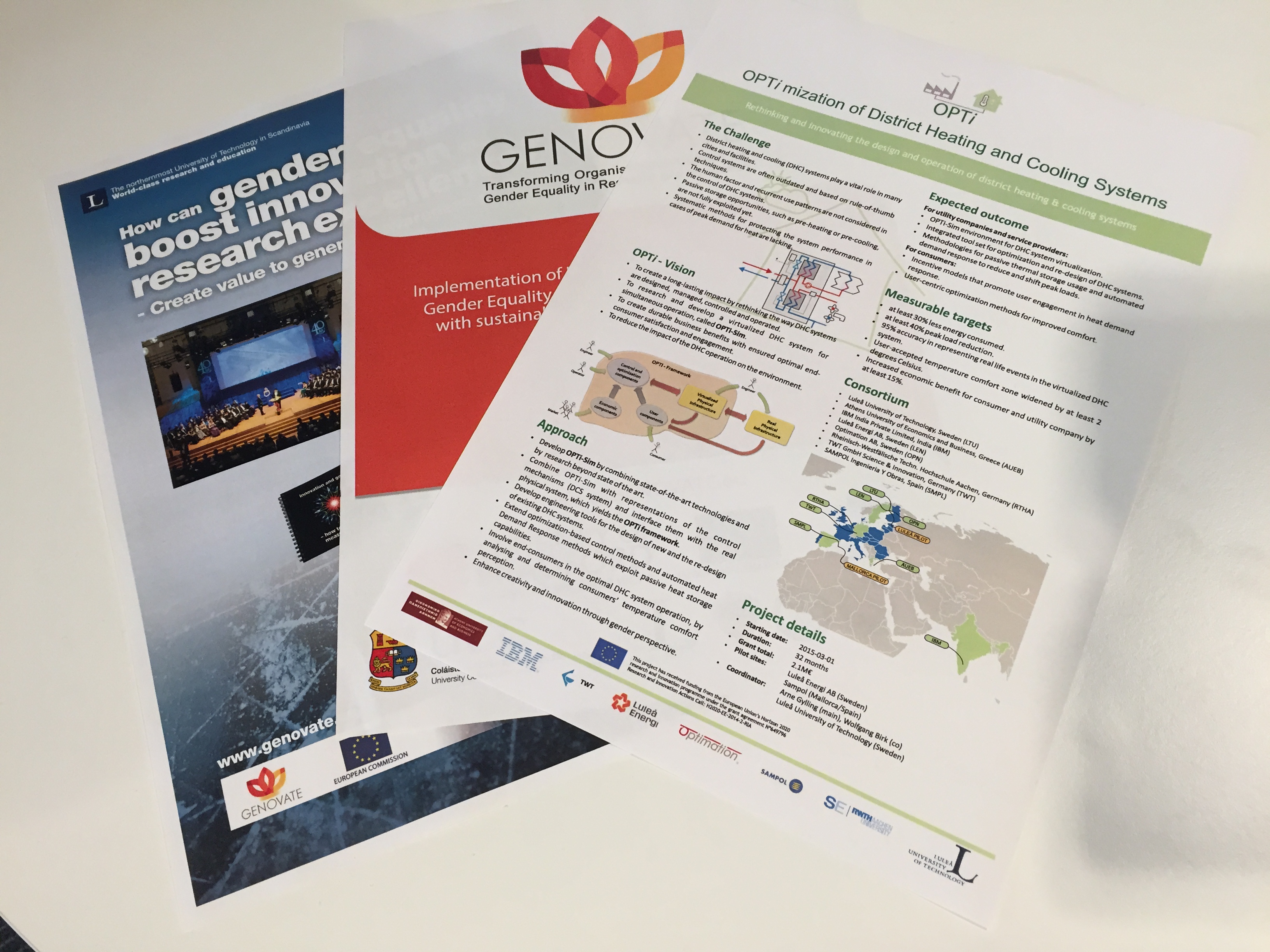

At Centre for Distance-spanning Technology we yesterday carried out a focus group in order to gain more knowledge about the culture climate change at LTU regarding gender equality. We use collaborative processes and participatory methods in our workshops to enable the sharing of knowledge and experiences between gender researchers and participants. This focus group is one of the activities when striving for a more innovative organisational development and change process at our university.
-Coming together is a beginning. Keeping together is progress. Working together is success. (Henry Ford)
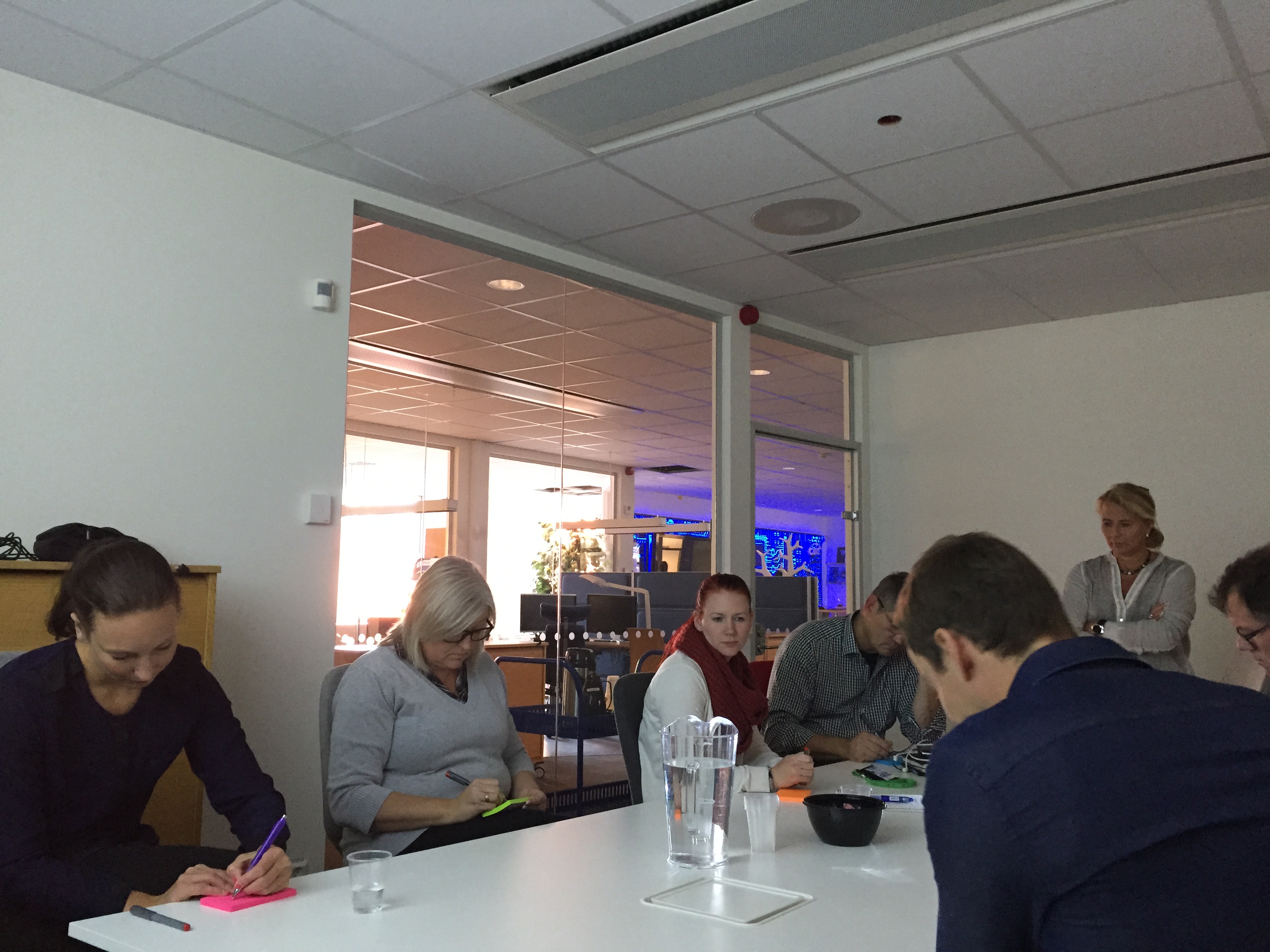
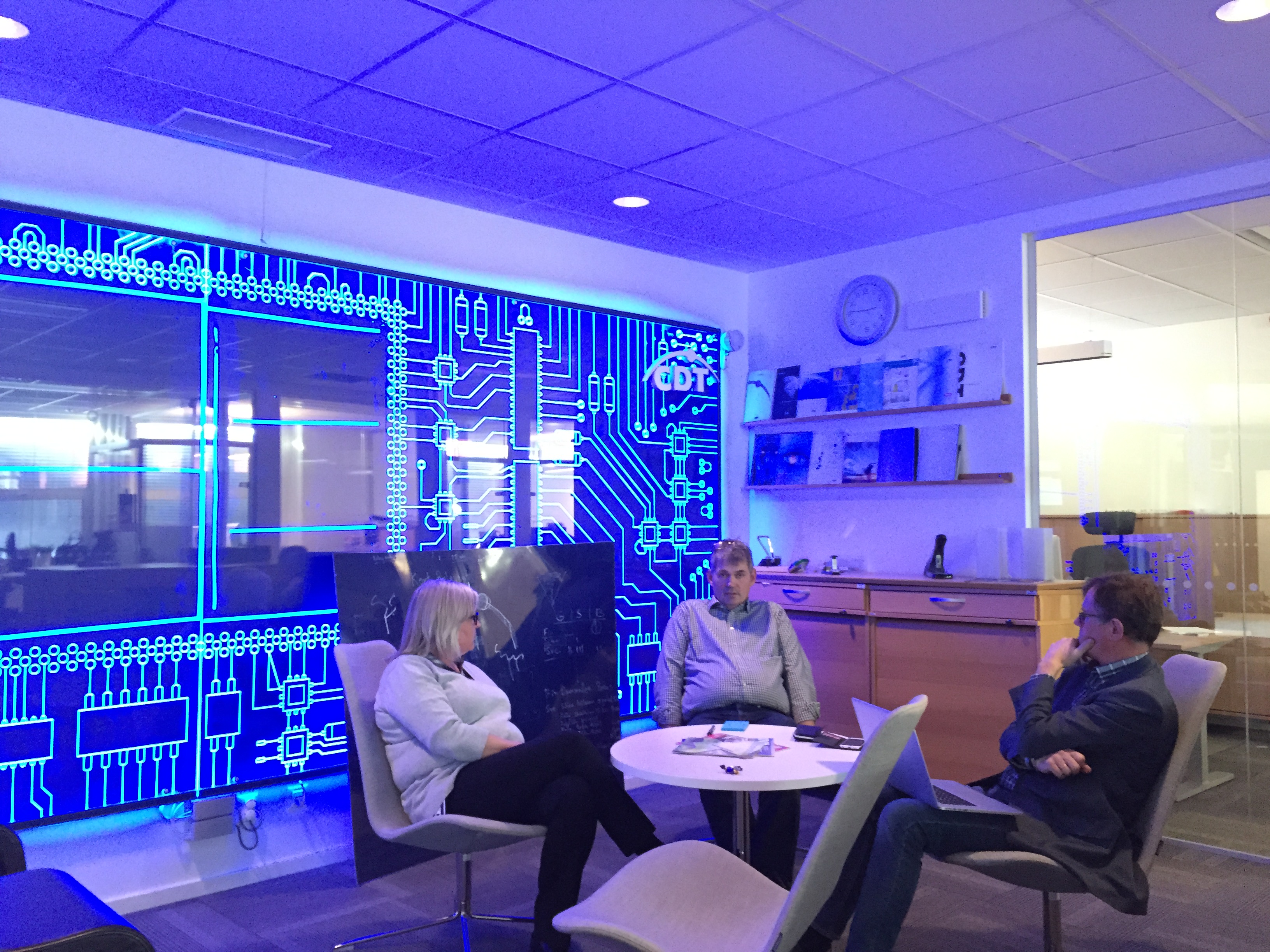
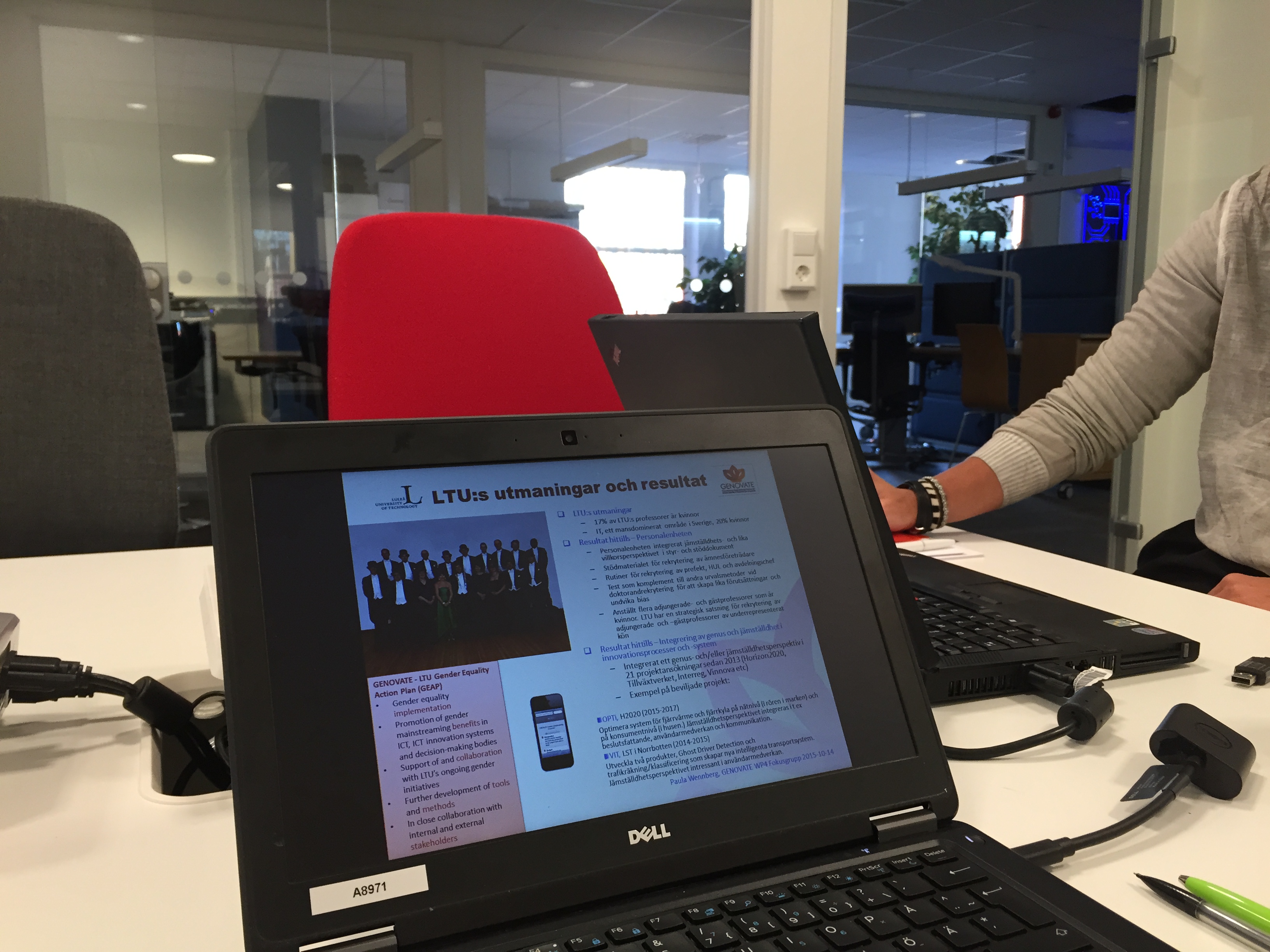
Powered by Multicategories for Joomla!2.5